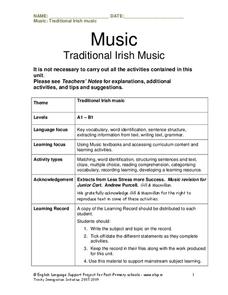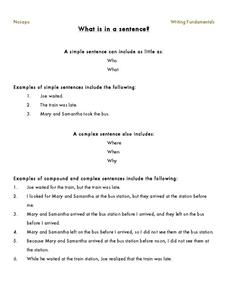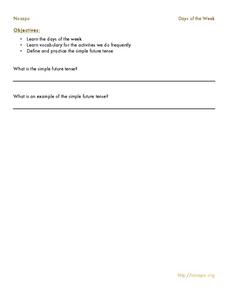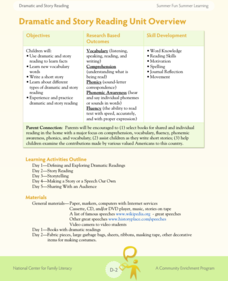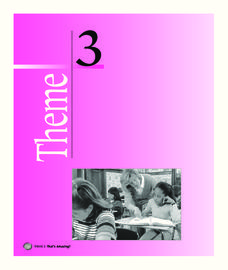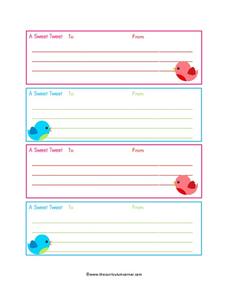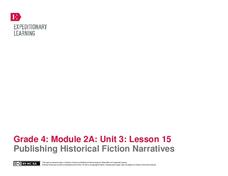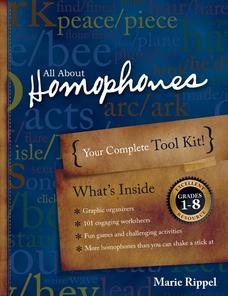National Park Service
Maltese Cross Cabin
The Maltese Cross Cabin, a frontier residence of Theodore Roosevelt, is a time capsule that commemorates Roosevelt's time in the Dakota territory. An explanatory video and response guide takes students on a virtual tour of the wooden...
Curated OER
Gerund as Subject
Working in groups, learners practice using gerunds as subjects by talking to one another. Then, independently, they write sentences using a subject, a verb, and a subject complement from a given list of each and in their own words. They...
English Language Support Programme
Traditional Irish Music
Celebrate sean-nós, céilí, and the lilting music of the Emerald Isle with a set of language arts activities! Learners complete word puzzles, vocabulary exercises, and comprehension questions about traditional Irish music.
Nosapo
What Is in a Sentence, Paragraph, and Story?
Language arts is made up of many parts. Learners review the parts of a sentence, as well as how to make a simple sentence into a complex sentence, before examining full paragraphs and identifying the topic, body, and concluding sentence...
Nosapo
Days of the Week
What do you usually do on Saturdays? What will you do on Thursday? Class members practice the simple future tense and the days of the week with a series of activities and questions. They then share their answers with a partner.
Roald Dahl
Matilda - The First Miracle
As the story unfolds, readers discover Matilda has a superpower. Take part in an activity that has learners talking about what superpower they would have, how they would use it, and how it could help others. Then, after reading the...
Roald Dahl
Matilda - The Weekly Test
Readers take the main characters in Matilda and individually describe them through a mnemonic. To get there, group members create an acrostic poem describing the character they were given, and choose one of the words from the...
Roald Dahl
Matilda - Throwing the Hammer
Full truth, or an exaggeration? How can you tell when a storyteller is exaggerating a story? Readers analyze a story told by Hortensia, and identify the exaggerative language she uses. Then, learners write their own narrative story using...
National Center for Families Learning
The Summer Fun Summer Learning Dramatic and Story Reading Unit
What's the difference between story reading and story telling? Participants in a summer enrichment program learn all about the difference as they listen to famous speeches, engage in dramatic readings, and craft their own short stories...
National Center for Families Learning
The Summer Fun Summer Learning Poetry Unit
Focus on poetry this summer to enhance those comprehension, fluency, and language skills with a set of resources intended to explore different types of poetry, specifically lyric poetry. The daily activities contain differentiation ideas...
Learning to Give
Create a Volunteer Spirit
Motivate young citizens to make a positive difference through volunteering. Scholars examine the local and school community to discover ways the class, as a whole, can volunteer their time to help one or the other, then reflect on their...
Learning to Give
Why Volunteer?
Inspire scholars to volunteer their time to make a positive change in their community. With help from research, a public speaker, and reflection, learners define and asses what it takes to be a volunteer in a business, non-profit,...
Houghton Mifflin Harcourt
That’s Amazing!: English Language Development Lessons (Theme 3)
That's Amazing! is the theme of an English language development unit created by Houghton Mifflin. Following a speak, look, move, and listen routine, scholars delve into topics; seasons, weather, animals, landforms, telling...
Curriculum Corner
Friendship Tweet
A tweet can only be 140 characters long, including spaces. Challenge class members to write a positive note to one or more of their peers in 140 characters or less. It is a great activity to give on Valentine's Day to upper...
BrainPOP
Civil Rights Lesson Plan: Tracking History Through Timelines
Use the accompanying assessment to determine your class's prior knowledge on Martin Luther King, Jr. before beginning a lesson on the famous civil rights movement leader. The resource has young historians thinking about life for African...
ESL Kid Stuff
Halloween
Build vocabulary and get in the Halloween sprit with a collection of festive activities! Here, scholars take part in a holiday celebration, unearth the unknown in mystery feel-boxes, and create monster masks out of paper plates.
Civil War Trust
Civil War Reader's Theater
Encourage class members to add expression and put themselves back in time during the Civil War with a reader's theater activity. The scripts include dialogue on what it was like for the Union and Confederate sides during this time.
EngageNY
Reviewing Conventions and Editing Peers’ Work
Encourage young writers to edit text based on conventions. After reviewing the conventions, fourth graders watch a teacher demonstrate how to revise a paragraph for correct spelling, capitalization, punctuation, or dialogue. Then, pairs...
EngageNY
Publishing Historical Fiction Narratives
Class members discover what it means to publish their works. Working on a computer, young writers use an online dictionary to edit their spellings and conventions based on the information added to the rubric. From here, and most of the...
Houghton Mifflin Harcourt
Practice Book: The Boy Who Saved Baseball
An array of reading comprehension, grammar, spelling, and vocabulary activities are at your fingertips with a language arts practice packet. Second, third, and fourth graders work on various skills using reading passages and word banks,...
Alpena-Montmorency-Alcona Educational Service District
4th Grade Personal Narrative
Throughout 10 lessons, fourth graders learn how to plan, organize, write, and edit their own personal narratives. In the beginning, young writers come up with ideas of personal experiences and the emotions linked with those experiences....
Curated OER
All About Homophones
Put the fun back in reading fundamentals with an interactive set of lessons about homophones. Learners of all ages explore the relationships between words that sound the same but have different meanings, and complete a...
English Grammar
Gerund or Infinitive – Fill in the Correct Form
Middle schoolers love listening to music, and they also love to listen to music. So what's the difference? Spell out the nuanced ways to use gerunds and infinitives with a 50-question grammar exercise. Given short sentences and verbs,...
Smekens Education Solutions, Inc.
Introducing the 6 Traits to Students
Put together an English language arts unit on the six traits of writing with this helpful collection of resources. From fun songs to differentiated writing exercises reinforcing each of the traits, great ideas are provided for...




